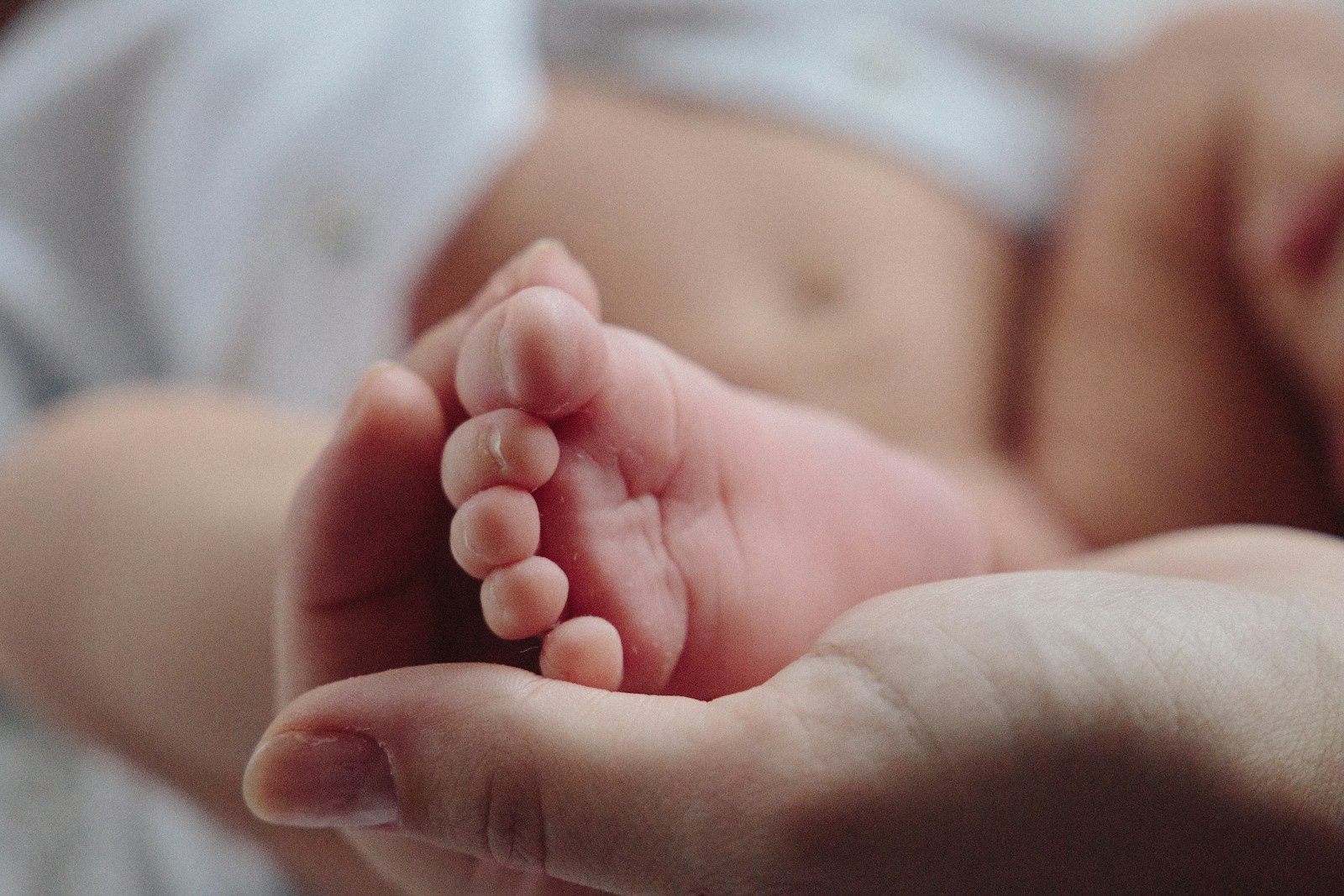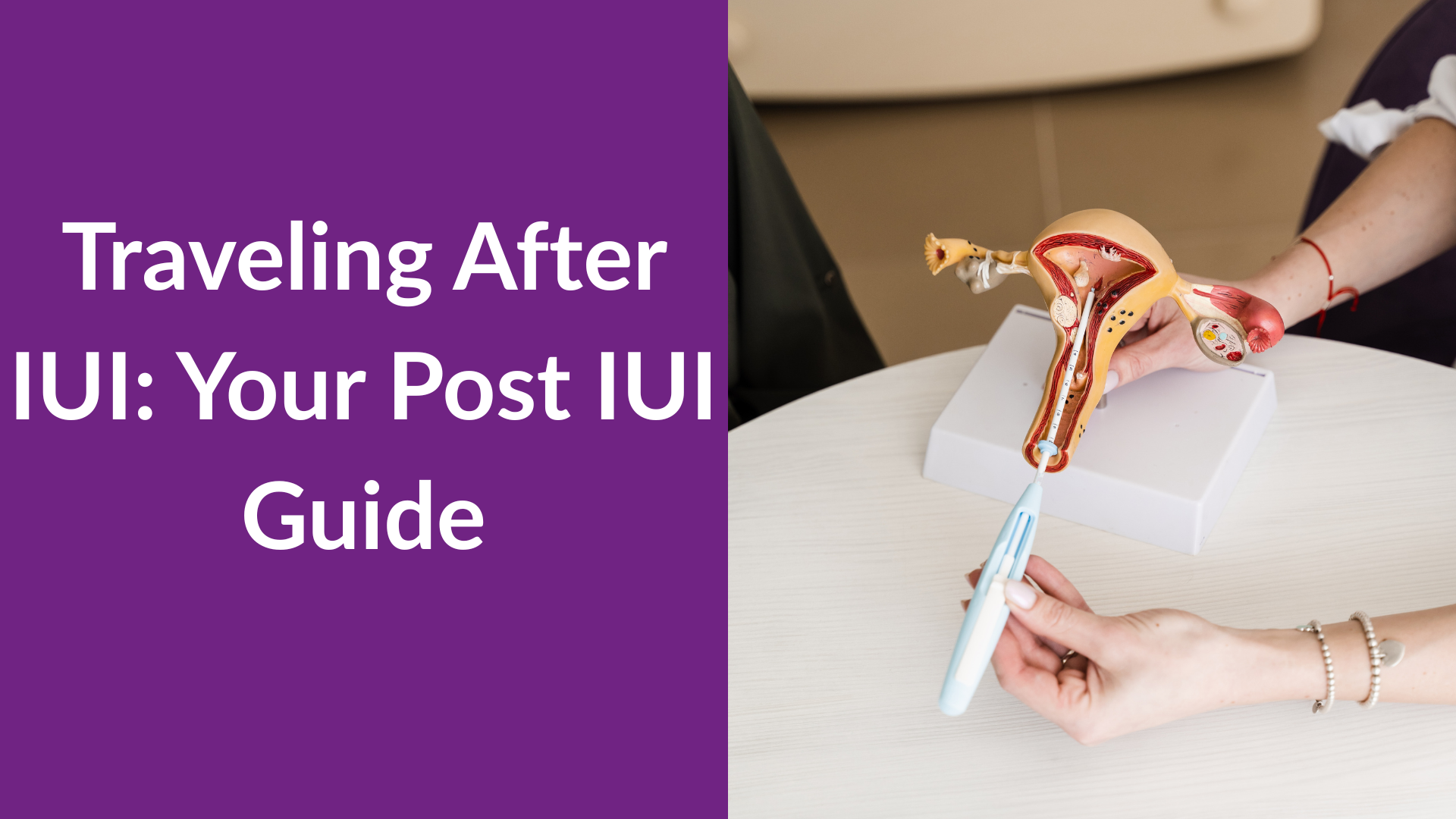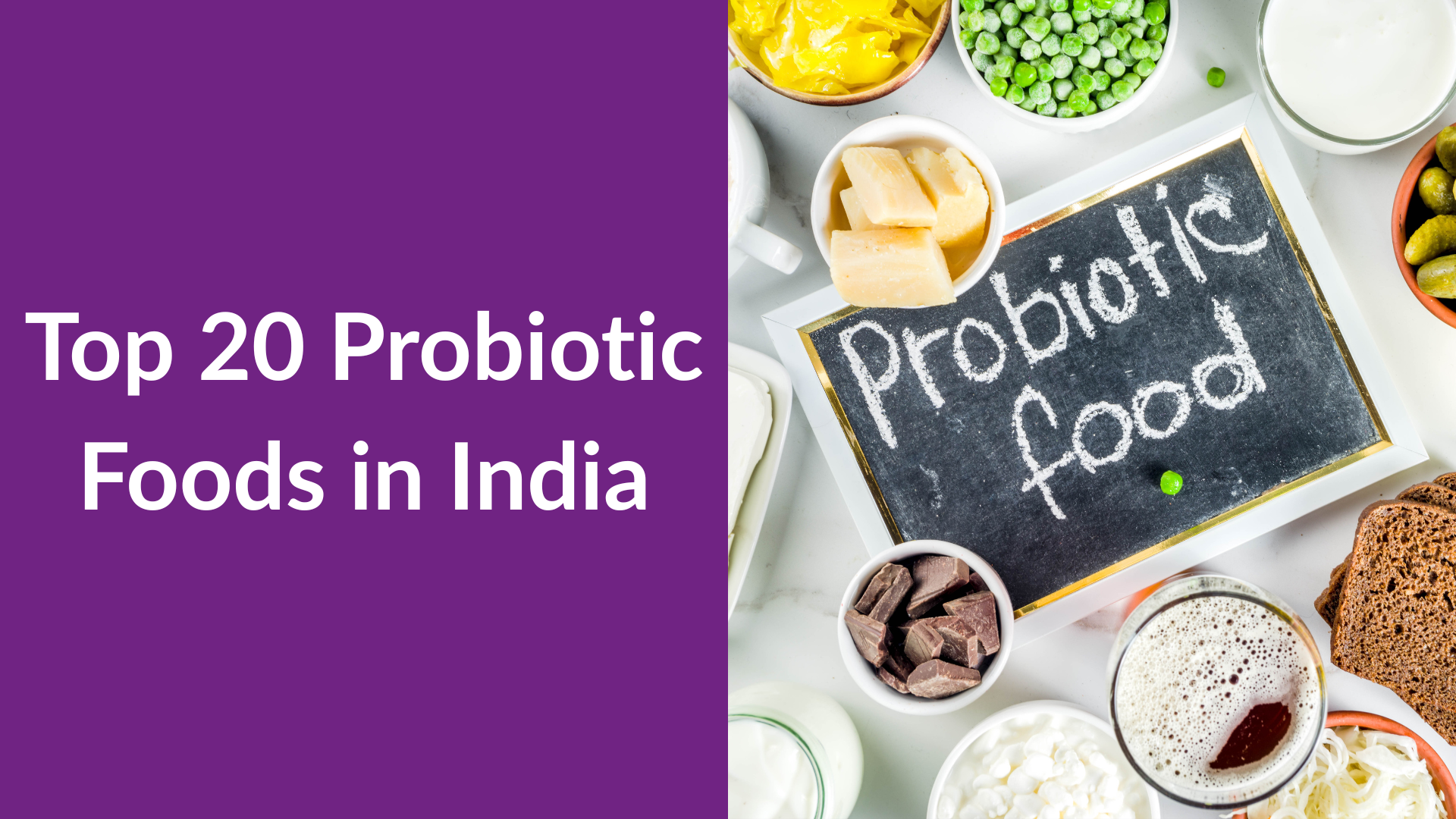Intrauterine Insemination (IUI) is a widely-used fertility treatment designed to increase the chances of conception by placing washed and concentrated sperm directly into a woman’s uterus during ovulation. This process bypasses several natural obstacles and significantly enhances the possibility of fertilization.
After undergoing IUI, many women find themselves wondering, “Can you travel after IUI?” and how their day-to-day activities might impact the success of the procedure. In this guide, we’ll cover all you need to know about traveling after IUI, day-by-day care, common symptoms, and essential precautions to maximize your chances of a positive pregnancy outcome.
Can You Travel After IUI?
Yes, you can travel after undergoing IUI. Most doctors do not place any strict restrictions on traveling, as the success of the procedure does not significantly depend on remaining stationary. However, there are a few key considerations to keep in mind:
1. Immediate Aftercare
- Following the procedure, your doctor may recommend resting for about 10 to 20 minutes. This period allows your body to relax and reduces cramping.
- Light Activity: You can resume light activities shortly after IUI. However, avoid heavy lifting and strenuous workouts immediately post-procedure.
2. Comfort During Travel
- Whether traveling by car, train, or flight, prioritize comfort. Choose seating that allows for movement and relaxation to avoid cramps or discomfort.
- Take regular breaks to stretch, especially on long journeys. This can help improve blood circulation and reduce muscle stiffness.
3. Altitude and Pressure Changes
- While flying is generally safe, high altitudes and pressure changes can occasionally cause mild discomfort.
- If your travel plans involve air travel, discuss it with your fertility specialist for personalized advice.
4. Stress and Relaxation
- Traveling can sometimes induce stress. Opt for calming activities and maintain a relaxed state of mind.
- If traveling makes you anxious, consider postponing it to reduce unnecessary stress on your body.
Day-by-Day Care After IUI – What to Expect?


Understanding what happens after IUI day by day helps in managing expectations and tracking potential IUI success symptoms day by day. Here’s a breakdown:
Day 1-2: Immediate Aftercare
- Symptoms: Mild cramping, slight spotting, or discomfort.
- Activities: Rest as needed. Light walking is acceptable.
- Diet: Maintain hydration with water and light fluids. Eat nutritious, balanced meals rich in folic acid and iron.
- Hot Flashes After IUI: Some women experience mild hot flashes due to hormonal changes. This is normal and typically subsides on its own.
Day 3-5: Post-IUI Adjustments
- Symptoms: Bloating, breast tenderness, and mild pelvic pressure.
- Activities: Continue with light activities and avoid high-intensity workouts.
- Monitoring: Watch for unusual bleeding or severe pain, and contact your doctor if needed.
Day 6-10: Implantation Window
- Symptoms: Some women may experience mild spotting or light cramping, indicating possible implantation after IUI.
- Diet: Focus on antioxidant-rich foods and adequate hydration.
- Mental Well-being: Practice relaxation techniques to alleviate stress.
Day 11-14: The Waiting Period
- Symptoms: Potential pregnancy symptoms may include fatigue, mild nausea, or heightened sense of smell.
- Pregnancy Test: Most doctors advise waiting at least 14 days post-IUI before taking a pregnancy test to avoid false negatives.
- Emotional Care: Engage in light, enjoyable activities to keep your mind occupied.
After IUI Care: Dos and Don’ts


To boost your chances of a successful pregnancy, follow these essential aftercare tips:
Do’s
- Hydrate Well: Drink plenty of water, coconut water, and herbal teas to maintain optimal body function.
- Follow Medical Instructions: Take all prescribed medications, including folic acid, without skipping any doses.
- Eat Balanced Meals: Prioritize lean proteins, whole grains, and plenty of fruits and vegetables.
- Relax: Incorporate light activities like walking or yoga to keep the body active without overexertion.
Don’ts
- Avoid Intense Physical Activity: Heavy lifting and strenuous exercise can negatively affect implantation.
- Limit Heat Exposure: Stay away from hot tubs, saunas, and hot baths.
- Say No to Smoking and Alcohol: These substances can significantly impact implantation success.
- Minimize Stress: Engage in calming practices like meditation or light reading.
Common Post-IUI Symptoms and What They Mean
During the waiting period after IUI, it’s essential to monitor your body for signs that might indicate pregnancy or potential concerns. Here are some common symptoms and what they could signify:
- Mild Cramping and Spotting: Normal during implantation.
- Breast Tenderness: Can occur due to hormonal changes.
- Bloating and Nausea: These can be early pregnancy indicators.
- Hot Flashes: Typically caused by hormone fluctuations.
- Emotional Fluctuations: Hormonal shifts can impact mood and energy levels.
When to Contact Your Doctor?
- Heavy vaginal bleeding
- Severe abdominal pain or cramping
- High fever or chills
- Dizziness or fainting
Travel Precautions After IUI: Ensuring Safety and Comfort
Traveling after IUI is generally considered safe if you take the following precautions:
- Plan Ahead: Choose comfortable seating and breaks for long trips.
- Medical Accessibility: Ensure you know the location of nearby healthcare facilities in case of emergencies.
- Pack Smart: Carry all necessary medications, a water bottle, and light snacks.
- Stay Stress-Free: Opt for relaxed travel plans and avoid tight schedules that may cause anxiety.
Can We Travel After IUI? Yes, But Be Mindful!
The key to traveling after IUI is balance. While there is no medical evidence suggesting that travel negatively impacts IUI success rates, every woman’s body is different. It is crucial to listen to your body and follow your doctor’s advice to ensure the best possible outcome. Traveling during the two-week wait is a personal decision, but maintaining calm, reducing stress, and staying comfortable are essential components of successful post-IUI care.
Final Thoughts
Taking proper care after IUI can significantly influence your journey toward a successful pregnancy. Stay positive, follow your doctor’s guidance, and incorporate stress-reducing practices to support your body during this crucial phase. Remember, whether traveling or resting at home, your comfort and peace of mind matter most. For any personalized advice or questions, feel free to consult the specialists at Eva Fertility Clinic. Our experts are here to guide you through every step of your fertility journey, providing dedicated support and professional care.
FAQ – Traveling After IUI


Are there any restrictions after an IUI?
After IUI, it is generally safe to resume normal activities, but it is advisable to avoid strenuous exercises, heavy lifting, and intense physical activities for at least a few days. Rest and relaxation are recommended to reduce stress and support potential implantation. Always follow your doctor’s specific instructions.
How many days to rest after IUI?
While complete bed rest is not necessary, it is recommended to rest for a few hours immediately after the procedure. Light activities can be resumed the same day, but avoiding vigorous exercises and heavy lifting for 24 to 48 hours can enhance comfort and reduce potential risks.
What should I avoid after IUI?
Avoid heavy lifting, strenuous workouts, and high-impact sports immediately after IUI. Also, steer clear of smoking, alcohol consumption, and hot environments like saunas and hot tubs. Minimize stress and follow a balanced diet to support reproductive health during the waiting period.
Which fruits should I avoid after IUI?
There is no definitive evidence suggesting specific fruits to avoid after IUI. However, some women prefer to avoid pineapple, papaya, and grapes due to myths about their effects on pregnancy. Always prioritize fresh, balanced, and nutritious foods and consult your doctor for personalized advice.
What is the best timing for IUI?
The ideal timing for IUI is around the time of ovulation, typically between 24 to 36 hours after an hCG injection or during the natural ovulation window. Coordinating the procedure with the fertile period maximizes the chances of successful fertilization and implantation.
What increases the success of IUI?
Success factors for IUI include well-timed procedures during ovulation, good sperm quality, and healthy ovarian function. Maintaining a healthy lifestyle, reducing stress, following prescribed medication protocols, and maintaining regular follow-up with your fertility specialist also contribute to positive outcomes.




